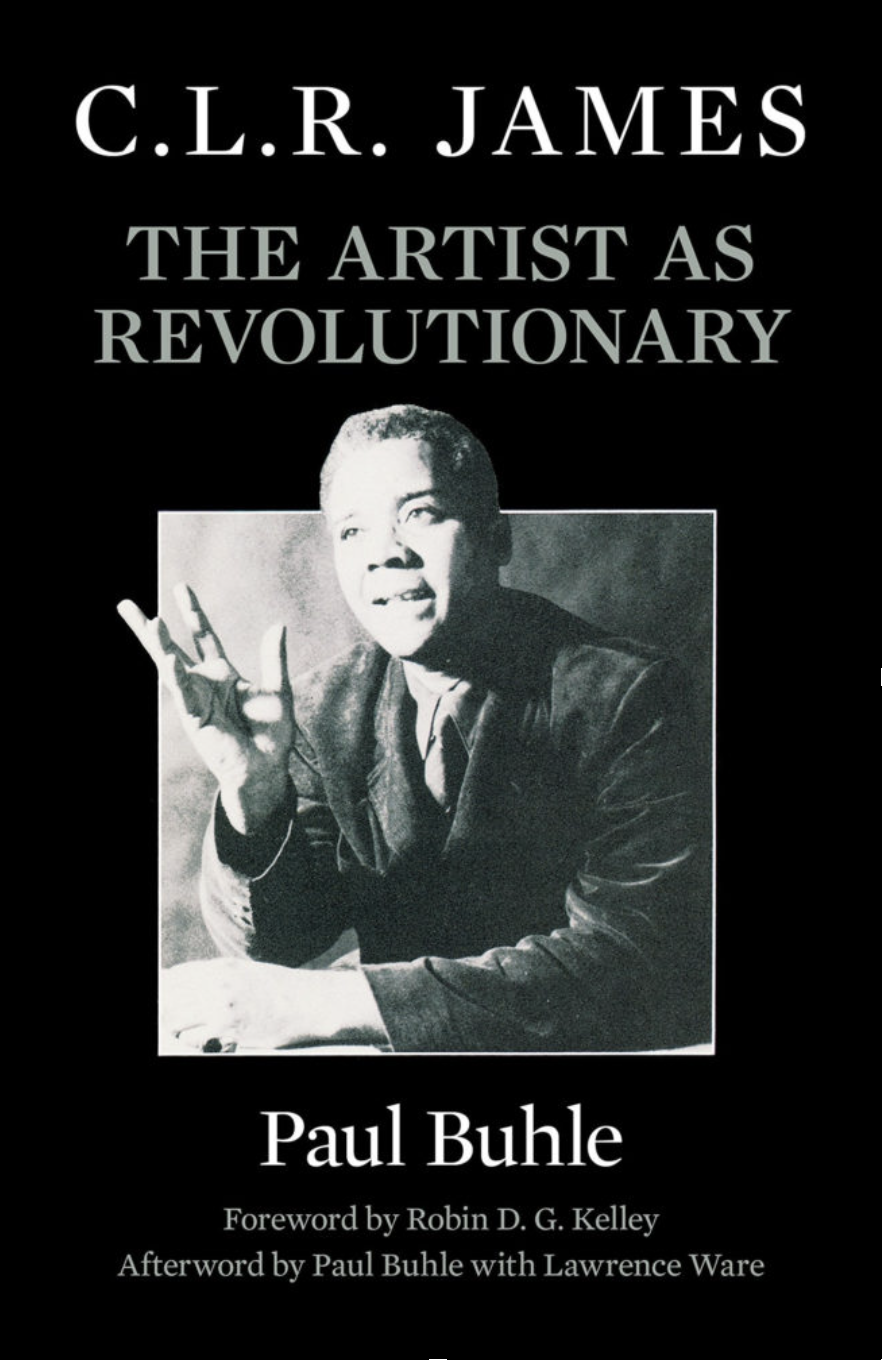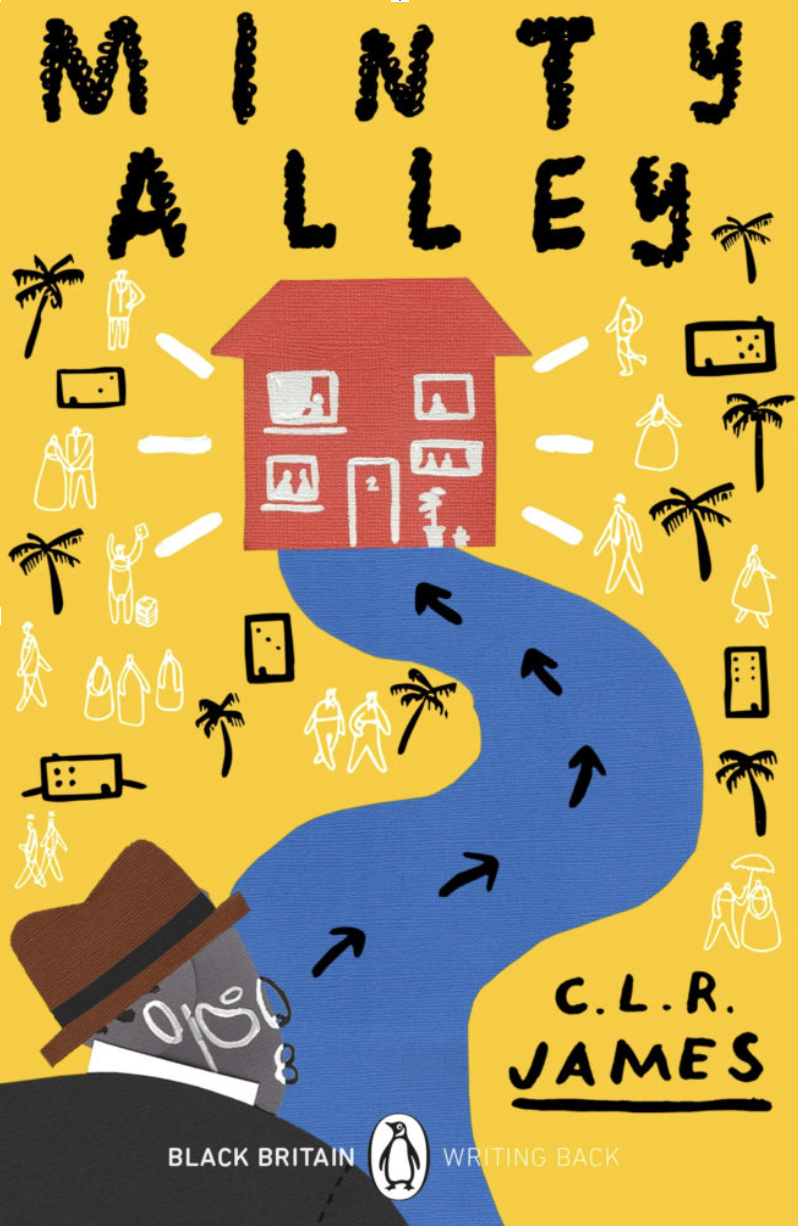C.L.R. JAMES - pioneering and influential Journalist, Historian and Leader of the Pan-African Movement
Cyril Lionel Robert James first made a name for himself in Britain as an elegant cricket correspondent for the Manchester Guardian.
Respected biography of C.L.R. James by Paul Buhle first published in 1988
Born in Trinidad in 1901, by the time he died in Railton Road Brixton in 1989, the Independent newspaper described him as ‘probably the most versatile and accomplished African-American intellectual of the 20th century.’
Stephen Howe in his entry for the Oxford Dictionary of National Biography said:
‘Very few figures in twentieth-century Caribbean, or British, life and letters have matched the sheer range of James’s interests and activities. Revolutionary and aesthete, novelist, historian, literary critic, philosopher, political analyst, and in many eyes the foremost of all writers on cricket.’
The Encyclopedia of the British Press 1422-1992 explained how his entry into British journalism came about when he left Trinidad in 1932 as a schoolmaster to join his friend Learie Constantine in Nelson, Lancashire where Constantine was playing professional cricket in the Lancashire League.
Neville Cardus recruited James to write on cricket for the Manchester Guardian and the Glasgow Herald. At the time Cardus was developing a new mode of sports writing, abandoning the normal stereotyped style in favour of elegant essays – all illuminated by memorable phrases.
James would extend the genre with poetic and musical metaphor and quotation. His 1963 book Beyond A Boundary would add the dimension of politics to his unique approach to writing about sport.
The First Edition cover of C.L.R. James’s ‘Beyond a Boundary’ published in 1963
The title of his book was inspired by the Rudyard Kipling poem ‘English Flag.’ In the preface James turned the line of verse ‘What do they know of England who only England know?’ into ‘What do they know of cricket who only cricket know?’
He said ‘To answer involves ideas as well as facts.’ The book would be regarded as a classic of sporting literature and indeed cultural studies.
It seems when anyone writes about C.L.R. James he is frequently defined as a journalist polymath.
His Washington Post obituary listed him as a ‘political historian, Marxist philosopher, novelist, political activist’ as well as a cricketing journalist.
The New York Times said he was ‘a prodigious and eclectic intellectual’ who travelled the world and ‘debated Marcus Garvey in England, confronted Trotsky in Mexico, helped conceive pan-Africanism and influenced leaders of African revolutions including Kwame Nkrumah of Ghana.’
He was a key leader and influencer of the 20th century pan-African movement who helped to change a world of European dominated Empires into self-determination and independence in the Caribbean and Africa and participation in global affairs on equal terms at the United Nations.
It can be argued that in the wake of Black Lives Matter social, political and cultural consciousness, he should be recognised not only as a great Black journalist, but a significant journalist in history for everyone.
There are now many published biographies. Paul Buhle wrote in C. L. R. James: The Artist as Revolutionary that when he arrived in Britain to help Learie write Cricket and I (1933), he had already completed The Case for West Indian Self Government.
Buhle said this was: ‘The first important manifesto for national independence in the British West Indies.’ His third wife Selma Weinstein James said ‘C. L. R. was fundamentally a political person and his great contribution was to break away from the very narrow and white male concept of what Marxist politics was.’
It was not the Stalinist politics of the Soviet Union. In the 1930s he had more sympathy with Leon Trotsky though when he met him in 1938 he recalled they had a ‘fairly fruitless exchange, especially on cricket.’
John Arlott when reviewing ‘Beyond A Boundary’ for the Cricketing ‘bible’ Wisden in 1964 observed the book was: ‘so outstanding as to compel any reviewer to check his adjectives several times before he describes it and, since he is likely to be dealing in superlatives, to measure them carefully to avoid over-praise – which this book does not need … in the opinion of the reviewer, it is the finest book written about the game of cricket.’
‘C.L.R. James The Enigma of Cricket’s Philosopher’ by Dave Renton
Selma James wrote in the Guardian in 2013 that it ‘broke down the barriers of race, class and empire.’ Her husband had though struggled to find a publisher.
Selma added; ‘Beyond a Boundary was part of a movement. Soon after, the anti-apartheid boycott swept across every sport and a Black Power salute from the Olympic podium shook the world. Campaigns against discrimination (including sexism) in sport no longer startle.’
‘Taking the knee’ , originated by American football player Colin Kaepernick on September 1, 2016 in protest against the lack of attention given to the issues of racial inequality and police brutality in the United States is another evolution.
After moving to London in 1934 C.L.R James wrote two books that have endured and risen in prominence both in his lifetime and posthumously.
He researched libraries in London and Paris for The Black Jacobins: Toussaint L’Ouverture and the San Domingo Revolution, a study of the Haitian revolution, and published by Secker and Warburg in 1938.
It served as a revelatory and important history of those events, and became the political manifesto for forthcoming anti- colonial revolt and for Pan-Africanism.
James also wrote a stage play Toussaint l’Ouverture from it which was performed at the Westminster Theatre in 1936, with Paul Robeson in the title role.
His novel Minty Alley had been written earlier in the summer of 1928 while he was still in the West Indies.
He explored the world of Trinidadian poor and their ‘barrack-yard’ homes. Secker and Warburg published it in 1936 and it became recognised as the first novel to be published by a black Caribbean author in the UK.
The cover of the Penguin ‘Black Britain, Writing Back’ publication of C.L.R. James’s novel Minty Alley, first published in 1936
It was recently selected by Booker prize winning author Bernardine Evaristo in the Penguin series ‘Black Britain Writing Back.’
The project serves to rediscover and celebrate pioneering books from Black Britain and the diaspora to ‘remap the nation and reframe history.’
Evaristo said James’s novel ‘brings the past alive with such charm, vitality and humour.’
C.L.R. had the kind of life that would make a spectacular and gripping feature film, perhaps a future project for the Oscar-winning Sir Steve McQueen.
He lectured, wrote and was politically active in the USA between 1938 and 1953.
There was a second marriage to a young white woman, Constance Webb, internment on Ellis Island over his residency status largely fomented by his left-wing politicking, and a return to London which became his constant home for the remaining 30 or so years of his life.
In the States he had been another casualty of McCarthyite red scare paranoia during the height of the Cold War though there was an irony in the fact he was being squeezed by the US prejudice of being labelled a communist and mainstream communists who regarded him as a heretic.
James drafted but never fully completed American Civilization between 1949–50.
It would be published posthumously in 1992, and Stephen Howe says it ‘was far ahead of its time in many ways; not least in its close analysis of “popular culture”—cinema, comic-books, radio serials, mass-market fiction—as a key to understanding a society.’
Between 1958 and 1960 he edited Trinidad’s The Nation but moved on after falling out with the country’s Prime Minister Eric Williams, who had been James’s school pupil thirty years earlier.
In 1981 James settled into a tiny book-filled apartment at 165 Railton Road, Brixton, above the offices of the magazine Race Today edited by his nephew Darcus Howe.
The Times newspaper’s obituary observed that he became the subject of ‘much admiration, a Trotskyite sage with a group gathered around him, mostly young and black.’
C.L.R. James is a major figure in journalism history whose life and influence is likely to gain in prominence and recognition in the years to come.
Reproduced from the article by Tim Crooks in the The Journal ()Chartered Institute of Journalist, 1/8/21,
Further Reading
Remembering CLR James An interview with Rachel Douglas, 31/05/23, Tribune: https://tribunemag.co.uk/2023/05/remembering-c-l-r-james/
CLR James: A Life Beyond the Boundaries review – making of a Marxist icon, Guardian Review, Madoc Cairns, 13 Mar 2022:; https://www.theguardian.com/books/2022/mar/13/clr-james-a-life-beyond-the-boundaries-review-making-of-a-marxist-icon
C.L.R. James: A Revolutionary Vision for the 20th Century by Anna G https://www.marxists.org/archive/james-clr/biograph.htmrimshaw
CLR James - The Making of Britain 1870 - 1950, The Open University https://www5.open.ac.uk/research-projects/making-britain/content/c-l-r-james
C.L.R. James - Wikipedia https://en.wikipedia.org/wiki/C._L._R._James#:~:text=Cyril%20Lionel%20Robert%20James%20(4,%2C%20social%2C%20and%20historiographical%20contexts.




